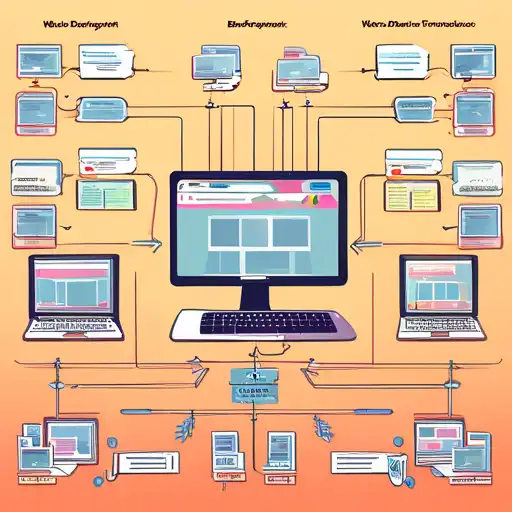Introduction to Web Development Frameworks
In the ever-evolving world of web development, choosing the right framework can be a daunting task. With a plethora of options available, each promising to be the best, developers often find themselves at a crossroads. This guide aims to simplify the decision-making process by highlighting key considerations and comparing popular frameworks.
Why Choosing the Right Framework Matters
The right web development framework can significantly impact the efficiency, scalability, and maintainability of your project. It can streamline development processes, enforce coding standards, and even influence the performance of your web application.
Key Factors to Consider
- Project Requirements: Understand the specific needs of your project, such as scalability, performance, and security.
- Learning Curve: Consider the time and resources available for your team to learn a new framework.
- Community Support: A strong community can provide valuable resources, plugins, and troubleshooting assistance.
- Future Maintenance: Evaluate the framework's roadmap and the frequency of updates to ensure long-term viability.
Popular Web Development Frameworks
Here's a brief overview of some of the most popular web development frameworks today:
Frontend Frameworks
- React: A JavaScript library for building user interfaces, known for its virtual DOM feature.
- Angular: A platform for building mobile and desktop web applications, developed by Google.
- Vue.js: A progressive framework for building UIs, designed to be incrementally adoptable.
Backend Frameworks
- Node.js: A JavaScript runtime built on Chrome's V8 JavaScript engine, ideal for building fast and scalable network applications.
- Django: A high-level Python web framework that encourages rapid development and clean, pragmatic design.
- Ruby on Rails: A server-side web application framework written in Ruby, emphasizing convention over configuration.
Making the Right Choice
Choosing the right web development framework depends on various factors, including the project's complexity, team expertise, and specific requirements. It's essential to conduct thorough research and possibly prototype with a few options before making a final decision.
For more insights into web development, check out our latest trends in web development article.
Conclusion
Selecting the appropriate web development framework is crucial for the success of your project. By considering the factors outlined in this guide and evaluating the popular frameworks available, you can make an informed decision that aligns with your project goals and team capabilities.
